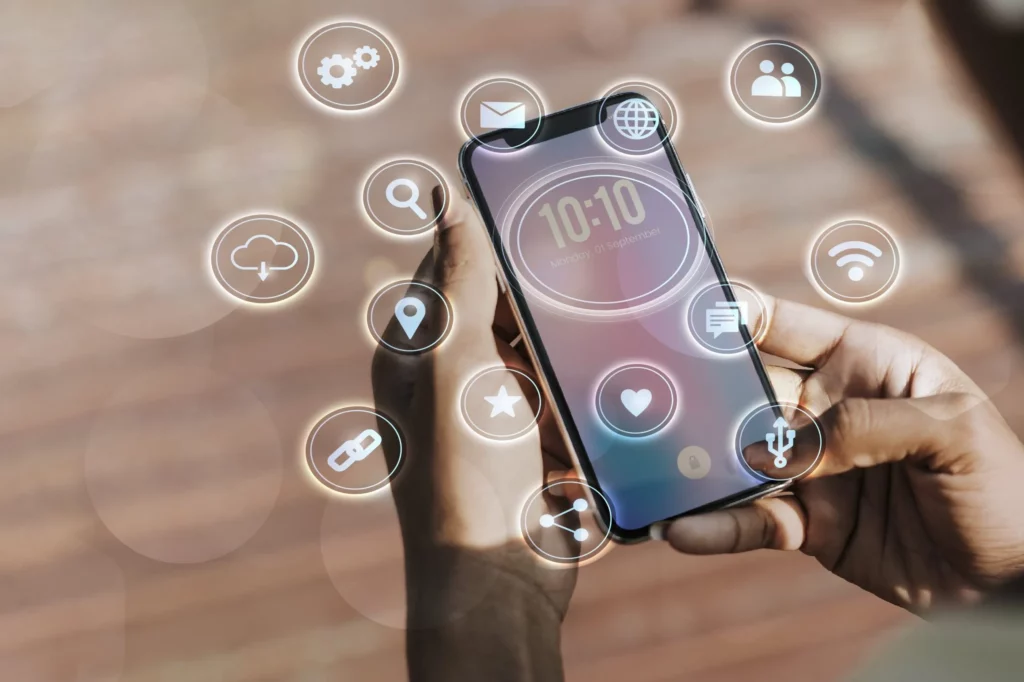Public trust is a cornerstone of effective governance. Without it, government actions, policies, and decisions face significant opposition and scrutiny.
One way the government and its organizations can protect their credibility and maintain public confidence is by conducting adverse media checks.
These checks are vital in today’s fast-paced digital world, where information spreads rapidly and can impact public perception almost instantly.
Adverse media checks not only help identify risks associated with individuals and organizations but also safeguard the integrity and transparency of government operations.
Understanding Adverse Media Checks
Adverse media checks, also known as negative news searches, are an essential tool in due diligence.
They involve searching for unfavorable media coverage linked to an individual, organization, or entity.
These checks focus on identifying connections to criminal activities, corruption, financial misconduct, and other forms of unethical behavior.
Adverse media can come from various sources such as:
- News outlets
- Blogs
- Online forums
- Social media
However, not all media sources are created equal. Reliable sources of information must be used to ensure accuracy and credibility when assessing an individual or organization’s risk profile.
As a recruiter or a government administrator, you have to rely on adverse media checks to assess the integrity of public officials, contractors, and business partners.
This process ensures that those involved with government operations are free from serious legal or ethical issues that could undermine public trust.
Why Public Confidence Matters?
Public confidence is one of the most critical elements of government legitimacy. When citizens trust their government, they are more likely to comply with laws, support policies, and engage in civic activities.
Conversely, when confidence is low, governments face heightened skepticism, protests, and challenges in policy implementation.
Adverse media checks play a pivotal role in maintaining this trust.
By ensuring transparency in hiring, partnerships, and collaborations, these checks minimize the risks associated with appointing individuals or entities with a history of misconduct.
When you actively vet employees and partners, it shows that you prioritize the public’s well-being and hold yourself accountable to maintain high standards.
The Process of Conducting Adverse Media Checks
Conducting adverse media checks requires a well-structured process that combines:
- Technology
- Human expertise
- Legal compliance
The government, its recruiters and departments must ensure that the information they gather is accurate and actionable, while also adhering to privacy laws and regulations.
Data Collection
The first step in the process is gathering data from diverse sources. These sources include:
- Mainstream Media Outlets
- Alternative News Platforms
- Social Media
- Public Records
The goal is to collect comprehensive data to identify any adverse events or incidents linked to the individual or organization being scrutinized.
Source Verification
Once the data is collected, the next step is verifying the credibility of the sources.
Not all media outlets are reliable, and some may be biased or prone to sensationalism. Ensuring that the media sources are credible helps reduce the risk of acting on inaccurate or misleading information.
Risk Assessment
After the information is verified, it is important to assess the level of risk it poses. You need to analyze whether the adverse media findings indicate a serious threat to integrity, security, or public trust?
This step helps differentiate between minor infractions and major violations, ensuring that you only act on substantial risks.
Legal and Ethical Considerations
Throughout the process, you must ensure that they are compliant with data privacy laws and regulations.
This includes obtaining consent for checks where applicable and ensuring that individuals’ privacy rights are not violated.
Ethical considerations should also guide the process, particularly when it comes to dealing with potentially defamatory information.
Key Benefits of Adverse Media Checks in Government
Adverse media checks offer numerous benefits to the government and its organizations that aim to protect their credibility and maintain public confidence.
By identifying potential risks early as a recruiter or administrator, you can prevent scandals, corruption, and other issues from damaging the government’s reputation.
Enhances Public Trust
Adverse media checks play a vital role in demonstrating a government’s commitment to transparency.
By thoroughly vetting public officials and business partners, government departments reassure the public that they are working with trustworthy individuals and organizations.
Prevents Conflicts of Interest
Governments frequently collaborate with private sector entities, which can create the potential for conflicts of interest.
Adverse media checks help governments identify any hidden affiliations or past misconduct that could interfere with objective decision-making.
Strengthens National Security
National security is a top priority for any government.
Adverse media checks help identify connections to organized crime, terrorism, or other threats that may compromise the country’s security.
By screening individuals and organizations for ties to criminal activities, governments can avoid inadvertently collaborating with entities that pose significant risks to national safety.
Reduces Corruption in Procurement Processes
Public procurement is a key area where corruption risks are prevalent.
Adverse media checks allow the government to vet contractors and suppliers for any history of fraud, bribery, or misconduct.
This process reduces the likelihood of corruption, ensuring that public funds are used responsibly and transparently.
Supports Ethical Hiring Practices
When hiring public servants, ethical standards must be upheld.
Adverse media checks ensure that the individuals joining government ranks have clean records and do not have a history of unethical behavior.
By doing so, your department can maintain a workforce that aligns with public values and avoids reputational damage.
Increases Investor Confidence in Public-Private Partnerships
Private sector investors often seek to collaborate with governments on large-scale projects, such as infrastructure development.
Adverse media checks increase investor confidence, leading to more successful collaborations and fewer risks of project delays or cancellations due to reputational issues.
Ensures Global Compliance Standards
In an increasingly interconnected world, governments must comply with global regulations related to anti-money laundering (AML) and anti-corruption practices.
Adverse media checks help governments meet these international standards by identifying potential violations early.
This ensures that the government maintains its credibility on the global stage and avoids the legal and reputational risks associated with non-compliance.
Protects Against Insider Threats
Adverse media checks can help identify potential insider threats within government organizations.
By screening employees and contractors for past unethical behavior or ties to criminal activity, you can prevent individuals with malicious intent from gaining access to sensitive information or resources.
Enhances Crisis Management and Response
Adverse media checks provide governments with early warnings about potential crises involving individuals or entities.
By identifying risks before they escalate into major scandals or public relations disasters, governments can prepare more effectively.
Supports Anti-Fraud and Anti-Corruption Efforts
Fraud and corruption are persistent risks in both public and private sectors.
Adverse media checks enable government organizations to identify individuals or organizations linked to fraudulent schemes or corruption.
Screening individuals and entities involved in public procurement, financial management, or large contracts further reduces the risk of fraud.
Strengthens International Diplomatic Relations
Governments engaged in international diplomacy must ensure that their partners are free from any adverse associations that could strain diplomatic ties.
By conducting thorough adverse media checks on foreign counterparts and international partners, governments can prevent embarrassing or damaging incidents that could arise from associations with disreputable individuals or organizations.
Risks and Challenges of Adverse Media Checks
While adverse media checks offer numerous benefits, they are not without risks and challenges. You must navigate these complexities to ensure that their checks are effective and ethical.
Incomplete or Inaccurate Data
Adverse media checks rely on the availability and accuracy of data from media sources. However, media coverage may not always be comprehensive or accurate.
Some incidents may be underreported, while others may be exaggerated.
Incomplete or inaccurate data can lead to flawed risk assessments and may result in decisions based on unreliable information.
Privacy and Ethical Concerns
Governments conducting adverse media checks must balance the need for information with individuals’ privacy rights.
There is a risk that these checks may infringe on privacy, particularly if they delve too deeply into personal matters unrelated to professional conduct.
Media Bias and Source Credibility
Not all media outlets are objective. Some may have political or ideological biases that affect their reporting.
Relying on biased or unreliable media sources can lead to incorrect conclusions about individuals or organizations.
Legal Implications of Incorrect Screening
If adverse media checks are conducted poorly or rely on inaccurate information, your department may face legal consequences.
Wrongfully excluding individuals or organizations based on false or defamatory media reports can lead to lawsuits and damage your department’s reputation.
Resource Intensive
Conducting comprehensive adverse media checks is a resource-intensive process.
For large-scale government operations, managing adverse media checks can become a logistical challenge, requiring significant investment to ensure that the process is effective.
The Risk of Over-Reliance on Media Data
While media data is an important tool for risk assessment, it should not be the sole factor in decision-making.
Over-reliance on media data may lead to incomplete assessments that fail to capture the full picture of an individual’s or organization’s integrity.
Managing Public Perception After Uncovering Negative Information
When adverse media checks reveal negative information, governments face the challenge of managing public perception.
Should this information be disclosed to the public, or should it remain confidential?
Balancing transparency with discretion is critical to maintaining public confidence while protecting individuals’ privacy.
Political Manipulation Risks
Media coverage is not always neutral, and adverse media reports may be politically motivated.
Governments must be cautious about using media data that could be influenced by political agendas.
Objective evaluation of the facts is necessary to ensure that decisions are based on accurate and unbiased information.
How To Effectively Implement Adverse Media Checks?
Governments that want to effectively implement adverse media checks must adopt best practices to ensure that the process is thorough, accurate, and legally compliant.
Collaborate with Specialized Background Verification Companies
Adverse media checks can be complex, and many government departments may lack the resources or expertise to conduct them effectively in-house.
Collaborating with specialized background verification companies allows you to access expert knowledge, advanced technology, and a comprehensive approach to risk assessment.
These companies have the tools and skills needed to perform in-depth adverse media screenings that reduce the risk of errors or incomplete information.
Build a Dedicated Adverse Media Screening Team
A dedicated team trained in adverse media screening is essential for ensuring that the process is carried out efficiently.
This team should be well-versed in media analysis, data verification, and legal compliance.
Ongoing training is important to keep the team updated on new tools and techniques, as well as changes in media landscapes and legal regulations.
Leverage Technology and Automation
The volume of media data generated today can be overwhelming.
You can improve efficiency and accuracy by leveraging AI-driven automation in their adverse media checks.
Automated tools can sift through vast amounts of data quickly, flagging potentially adverse findings for further review by human experts.
This combination of technology and human oversight allows you to manage large-scale checks more effectively.
Establish Clear Policies and Guidelines
Governments need to create clear, standardized policies that outline the scope, objectives, and procedures for conducting adverse media checks.
These guidelines should specify which individuals, organizations, or transactions are subject to screening, the types of media sources to be consulted, and the frequency of these checks.
Integrate Adverse Media Checks into the Recruitment Process
To ensure that only trustworthy individuals enter public service, governments should integrate adverse media checks into the recruitment process for all government positions, especially those in high-level or sensitive roles.
Develop Strong Partnerships with International Media Monitoring Organizations
If your department is operating on a global scale or dealing with international entities, you should develop partnerships with international media monitoring organizations.
These organizations provide access to diverse, multilingual sources of adverse media, ensuring that governments can screen for risks even across borders.
This global perspective helps identify potential threats from foreign companies, individuals, or governments that may not be covered by local media sources.
Conduct Regular Audits and Updates of Media Screening Protocols
Government departments and organizations must stay adaptive by conducting regular audits of their adverse media screening protocols.
Regular reviews ensure that the process remains effective and relevant, enabling you to stay ahead of emerging risks and maintain the highest level of vigilance.
Future Trends in Adverse Media Checks for Government
As technology and media continue to evolve, so will the tools and strategies used for adverse media checks.
You must stay ahead of these trends to remain effective in your risk management efforts.
AI-Driven Adverse Media Screening
Artificial intelligence (AI) is already transforming adverse media checks. AI-driven systems can analyze vast quantities of data in real time, identify patterns, and flag potential risks that may go unnoticed by human reviewers.
As AI technology improves, it will become an even more integral part of the adverse media screening process.
Increased Regulation and Global Compliance
Governments are increasingly held to global standards of transparency and accountability.
As international regulations on anti-money laundering (AML) and anti-corruption become stricter, the government and all its departments will need to enhance their adverse media checks to comply with these standards.
Emerging Sources of Media Information
The rise of social media, blogs, and non-traditional news platforms is changing the way adverse media is identified.
Government organizations need to expand their screening efforts to include these emerging sources of information.
Monitoring platforms like X, Facebook, and other online forums will become essential to ensure that no critical information is missed.
Conclusion
Adverse media checks are an indispensable tool for any government that wants to maintain public trust and protect its reputation.
These checks help identify risks, prevent conflicts of interest, and ensure ethical governance.
However, government organizations and departments must navigate the risks and challenges associated with these checks, including media bias, privacy concerns, and resource constraints.
Collaborating with AMS Inform
Given the critical nature and intricacies of conducting thorough adverse media checks, many government organizations choose to partner with AMS Inform.
With over 38 years of experience since its founding in 1986, AMS Inform has built a solid reputation in the background verification industry.
Our services encompass a wide range of verifications, including adverse media screening, Digital ID and identity verification, educational background checks, as well as pre-and post-employment screenings.
We also provide credit assessments, health and drug screenings, insurance claim investigations, and professional language translation services.
By working with AMS Inform, you not only streamline the verification process but also ensure adherence to all applicable regulations and legal standards.
Operating in more than 160 countries and with local teams in 16, we are well-equipped to offer global support.
As proud members of NASSCOM and PBSA, we are committed to safeguarding both the reputation and operational integrity of your organization.
Contact our team today for personalized solutions tailored to your adverse media check requirements.

















